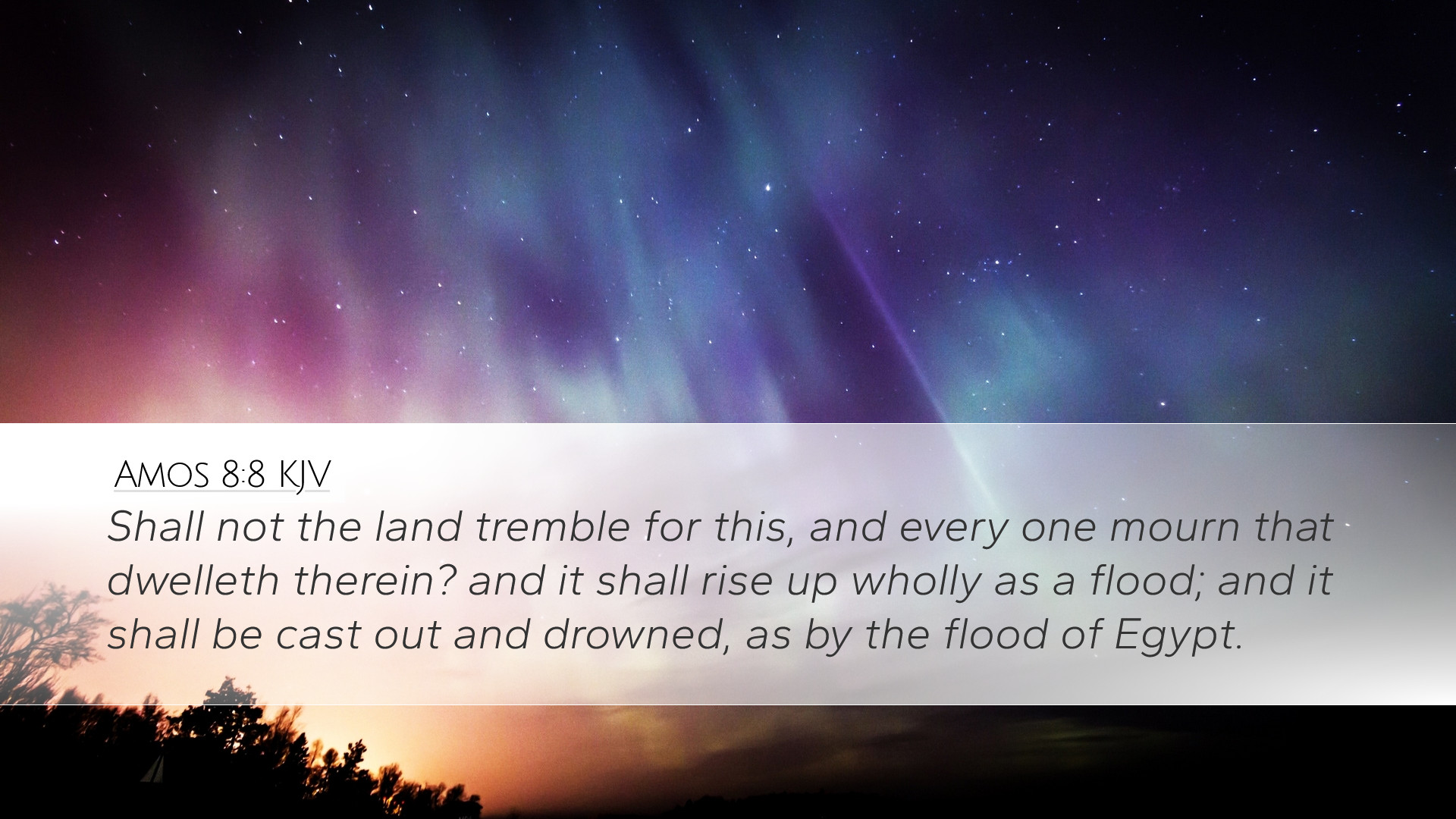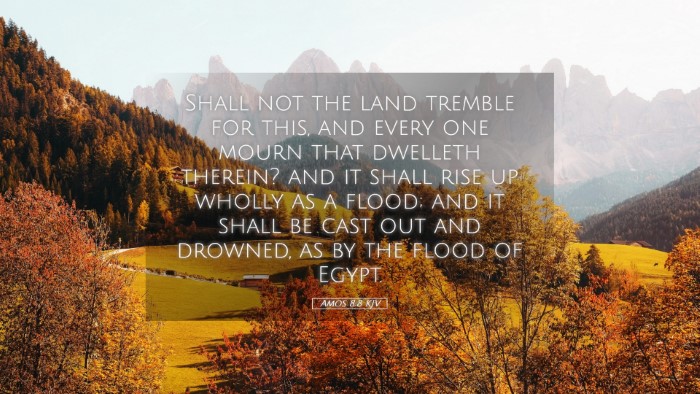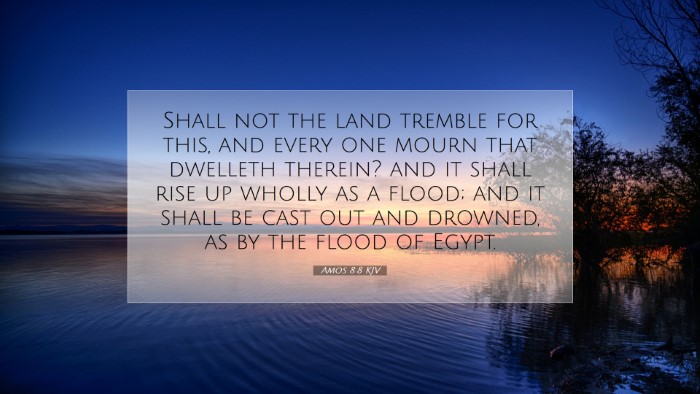Old Testament
Genesis Exodus Leviticus Numbers Deuteronomy Joshua Judges Ruth 1 Samuel 2 Samuel 1 Kings 2 Kings 1 Chronicles 2 Chronicles Ezra Nehemiah Esther Job Psalms Proverbs Ecclesiastes Song of Solomon Isaiah Jeremiah Lamentations Ezekiel Daniel Hosea Joel Amos Obadiah Jonah Micah Nahum Habakkuk Zephaniah Haggai Zechariah MalachiAmos 8:8
Amos 8:8 KJV
Shall not the land tremble for this, and every one mourn that dwelleth therein? and it shall rise up wholly as a flood; and it shall be cast out and drowned, as by the flood of Egypt.
Amos 8:8 Bible Commentary
Commentary on Amos 8:8
Amos 8:8 states, "Shall not the land tremble for this, and every one mourn that dwelleth therein?" This verse, steeped in prophetic language, calls attention to the impending judgment upon Israel due to their transgressions. Below is a comprehensive commentary combining insights from well-regarded public domain sources.
Contextual Analysis
The Book of Amos is a prophetic text that largely addresses the social injustices rampant in Israel during the 8th century B.C. Amos, an early prophet from the Southern Kingdom of Judah, foretold the coming judgment upon the Northern Kingdom due to rampant moral decay, exploitation, and a disregard for divine law.
Verse Exploration
Amos 8:8 encapsulates the gravity of Israel's sins and foreshadows the divine retribution that would follow. This prophetic declaration invokes an image of a trembling land, indicative of both physical and spiritual upheaval resulting from God's judgment.
Interpretation from Matthew Henry
According to Matthew Henry, this verse expresses the just cause for trembling and mourning among the inhabitants of Israel. He suggests that such emotional responses are not merely symbolic but reflect a deep-rooted understanding of the consequences of systemic sin. The land’s tremble signifies a violent shift—the end of prosperity and peace that Israel had experienced due to injustice and idolatry.
Insights from Albert Barnes
Albert Barnes elaborates on the personification of the land, which “trembles” as a result of divine judgment. Barnes interprets the trembling not only as a natural disaster but also as a broader statement regarding societal collapse. He notes that as the Israelites ignored God’s call for justice, they invited disorder into their society, causing God’s displeasure to manifest in tangible ways.
Adam Clarke's Commentary
Adam Clarke emphasizes the moral implications of the verse, noting that the calamity prophesied serves as a divine reaction against the egregious sins practiced by the Israelites. Clarke highlights that the mourning mentioned will be a profound recognition of the consequences of ignoring righteousness, compelling the populace to confront the reality of their disobedience.
Theological Implications
The implications drawn from this verse can resonate deeply for pastors, students, theologians, and Bible scholars. The themes of justice, divine judgment, and moral responsibility are woven throughout the text and are relevant to contemporary discussions on social justice and biblical prophecy.
Historical Context and Its Relevance
The relevance of Amos 8:8 extends beyond its immediate historical context. The verse speaks to the cyclical nature of history where nations and peoples pay the price of moral neglect. Engaging with the insights from the commentaries, one can derive lessons on the importance of upholding justice and righteousness within society.
Modern Application
In contemporary settings, this verse challenges leaders and believers alike to evaluate their own communities and the moral climate of modern society. The “tremble” of the land can be interpreted as the unrest seen in various societal issues today: inequality, corruption, and spiritual apathy.
Conclusion
Amos 8:8 serves as a profound reminder of the consequences of collective sin and the call for repentance. The insights provided by Matthew Henry, Albert Barnes, and Adam Clarke contribute to a richer understanding of the text and its implications. Engaging with these commentaries encourages a holistic view of scripture, urging believers to respond to God's call for justice and righteousness.


